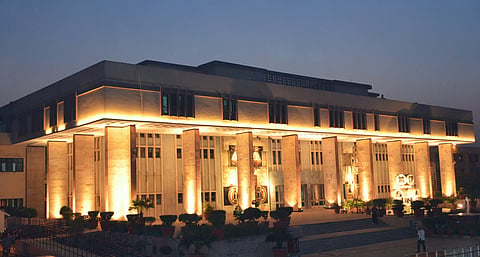

The University Grants Commission (UGC) has been ordered by the Delhi High Court (HC) to take the required legal action against universities and colleges that provide undefined degrees since these institutions are subject to sanctions under Section 24 of the UGC Act, 1956.
According to the court, the purpose of periodically posting the specifications of degrees approved by the UGC on its website is to guarantee for all colleges and universities, as well as the students enrolled in those institutions, that degrees earned by students pursuing unspecified degree programmes will not be recognised by the UGC. It is done to keep educational standards consistent.
However, ANI reports that the Bench of Justice Satish Chandra Sharma and Justice Sanjeev Narula directed the University Grants Commission to take the necessary steps to ensure compliance with the provisions of the UGC Act, 1956, in an order on a public interest litigation highlighting the inaction of the University Grants Commission with respect to Universities/Institutions/
Rahul Mahajan, the petitioner, asked the UGC in a plea for guidance to guarantee compliance with a notice dated July 5, 2014, issued by the UGC, and related notifications to maintain consistency in degree nomenclature, by all universities, deemed-to-be universities, colleges, and institutions.
The petition also requested that UGC give instructions to guarantee that a comprehensive list of specific degrees is widely published at least twice a year, just before the start of each academic session.
In his appeal on behalf of the petitioner, attorney Vikram Singh Kushwaha argued that students are awarded degrees that are not recognised by the UGC due to gaps and inconsistencies in the UGC's laws, rules, and regulations as well as the respondents' lack of responsibility. Due to this, students are forced to squander their time, money, and effort on an unattainable future.
In its affidavit, UGC claimed that it had already asked the vice-chancellors of all institutions to follow the rules for degree nomenclature outlined in the notice dated 5 July 2014. In the aforementioned letter to all the institutions, the UGC also made it clear that UGC regulations and notifications are legally binding and must be complied with by all universities.
While rendering its decision, the Delhi High Court noted that the UGC had sent different letters to all the universities to check that they were in compliance with the UGC Act's provisions on the specification of degrees. Therefore, it is clear that UGC is doing all possible to guarantee that the UGC Act, 1956, which outlines the requirements for degrees, is strictly followed.
Given the foregoing, no decision on the current writ petition is necessary. The Delhi High Court instructed UGC to take the proper steps necessary to guarantee compliance with the UGC Act, 1956, nevertheless.
